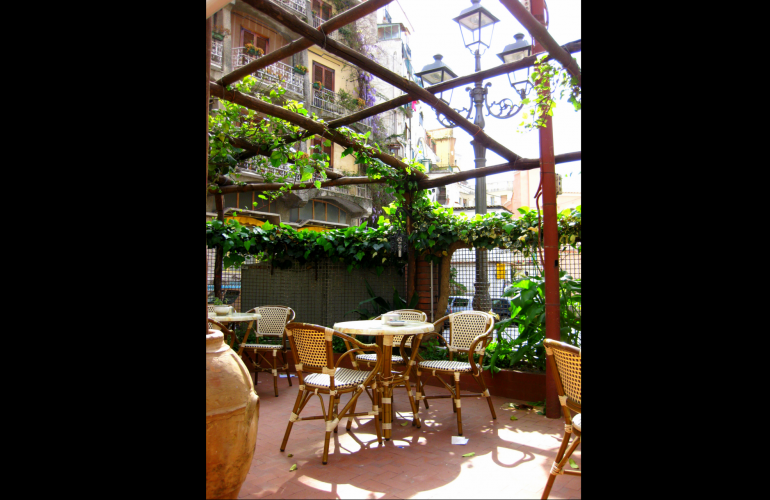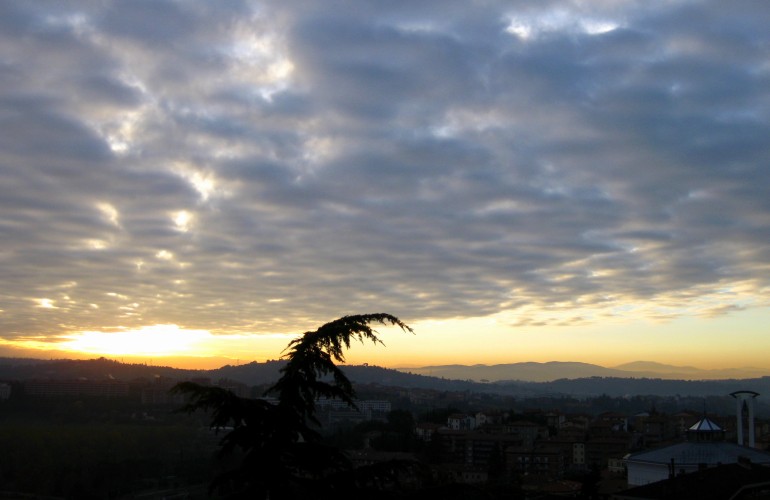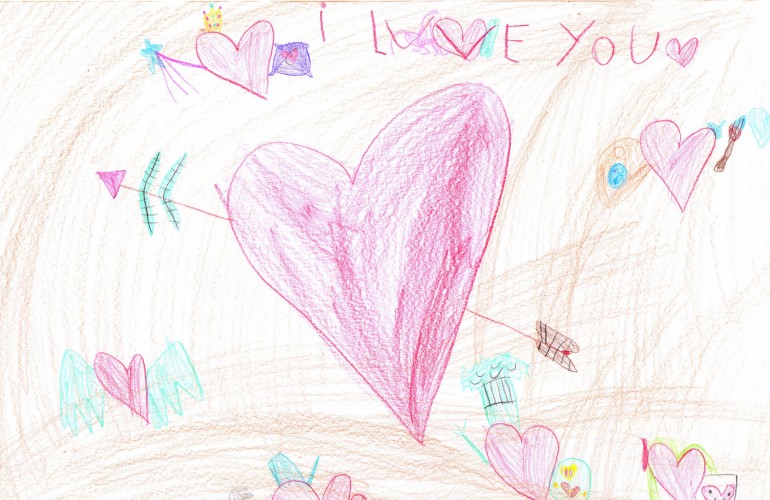I’ve been doing a bit of blog spring summer cleaning over the last few days—super-gluing links, spit-shining categories, that sort of thing—and I found myself reading back over the first two years’ worth of entries while gravity slowly condensed in the room. My God.
The summer we packed up our lives to move to Italy, my head was unstable territory. I had been juggling four part-time jobs which suited me not at all, my plans for graduate school had been shot down for the second time, and I had stopped writing… which meant I was no longer checked in to my own life. On top of this was the vast unknown of our future. I was in my second trimester of pregnancy with Sophie, and the delay in getting our Italian paperwork had left us literally homeless and living off the generosity of friends.
It was during one unsteady weekend curled up in the guest room of our friend’s house that I started this blog. I was desperate for the outlet, the perspective, the satisfaction, and the community, though I couldn’t have articulated those reasons at the time. Blogging still only registered as a hobby (I had no idea how much the blogosphere had changed since our first fling; Dooce was now a verb?!), but it got me writing and connecting with kindred spirits again, just in time for the greatest upheaval of my life.
We moved. I adjusted piecemeal to the new culture. I pined for friends and set up house and gave birth, and somewhere in the rock ‘n’ reel of it all, depression yawned up underneath like a sudden sinkhole. I’ve had melancholic tendencies my whole life, but nothing could have prepared me for the following year and a half. I never admitted here on my blog just how bad my depression was, but the utter hopelessness in mind still left its imprint on posts about frustration, insufficiency, and unrelenting exhaustion. My personal journal entries delved into far darker territory, and reading over them now recalls the pain so intensely that my lungs flail against its memory.
Have you seen those “depression hurts” commercials with the sad-faced people blankly going about their daily routines? I only wish my experience had been so serene. For an eternal year and a half, my mind was trapped inside a darkness that I couldn’t measure, couldn’t make sense of, couldn’t get enough of a grasp on to fight. I couldn’t describe it without sounding crazy, so I tried to pass it off as allergies, nutritional deficiencies, standard new mom tiredness, even weather-related gloom. (In retrospect, maybe my doctor would have helped me more if I hadn’t done such a good job playing down the crazy.) I didn’t know how to ask for help because I didn’t know what I needed except OUT, and I didn’t have the courage anyway to admit my problems to our new Italian friend-quaintances.
I knew the stigma of mental disorders as faux illnesses, socially unacceptable displays of weakness. I had judged people before for not being able to “get a grip” and even for seeking counseling. So I kept the darkness within the walls of our apartment and only wrote about it on the good days… days in which I could handle getting out of bed and putting on some makeup, maybe even taking the girls to the park for ten minutes. On the other days, the not so good ones, life pressed in from all sides with an impossible weight, and continuing to breathe was the hardest thing I’ve ever had to do. I didn’t want to survive.
Yet I did. No matter how unbearable the panic of being, I couldn’t leave my daughters or husband bereft, and flickers of hope from here in the blogging community helped me keep that resolve on days when darkness started to win. Encouraging comments from kindred souls. Liz’s virtual hugs. Nino’s information on long-time postpartum depression (up until then, I had never heard of it lasting beyond six months). Jennifer’s honesty about her own time in the valley. Prayers from people who read between the lines and got what was going on. Together, they lit the way to my freedom.
And now, more than two years on the other side of endless night, I’d like to follow Jennifer’s lead and show you a photograph from the very worst stretch:
It was taken mere days before I started to get better, and it kills me knowing that the me in the photograph had no idea. I wish I could slip back through a shortcut in time and promise her that spring is already there, even if she can’t feel it yet. I want to tell her that in a few short weeks, she’ll be tossing sun-drenched hair out of her eyes and chasing those sweet little girls through streets full of stories. I want to assure her that she’ll laugh again and that her daughters will forget the tears. I want to show her the beauty masquerading as a demolition project, the grace dissolving her terror of motherhood, and the art whispering promises, and I want her to see this next photograph of an August afternoon two years later on that same red sofa:
There is hope.





